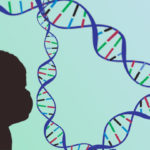In many patients with diabetes, early signs leading to diagnosis include abnormal levels of glucose, increased urinary excretion, and higher food consumption.
While those symptoms may be able to determine likelihood of diabetes diagnosis, machine learning could be the most capable way of accurately predicting future onset of diabetes, a new study has found.
As published in the Journal of the Endocrine Society, a research team utilized a form of artificial intelligence known as machine learning, which comprises of computerized algorithms learning and adapting to new patterns when exposed to fresh data.
For the study, over 500,000 medical records from more than 130,000 patients were analyzed by the research team, 65,505 of which were regarded as having no prior history of diabetes. The records, dated 2008 through 2018, were based in a populated region of Japan.
In the records were physical exams, questionnaires, and annual blood and urine tests. “The data included physical exams, blood and urine tests and participant questionnaires,” a news release states.
“Patients without diabetes at the beginning of the study who underwent more than two annual health checkups during this period were included. New cases of diabetes were recorded during patients’ checkups.”
Upon the completion of their analysis, researchers found that their implementation of machine learning was able to predict the onset of diabetes with an accuracy of nearly 95%. Throughout the study, 4,696 were identified as new patients with diabetes, based on researchers’ assessment.
“In conclusion, the machine learning-based prediction model satisfactorily identified the diabetes mellitus (DM) onset prior to the actual incidence,” the findings concluded.


